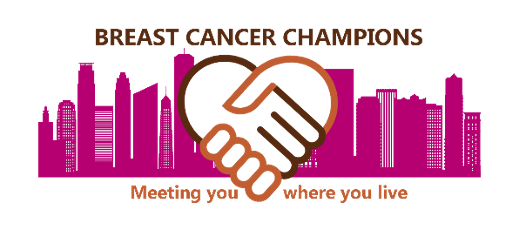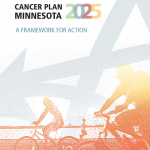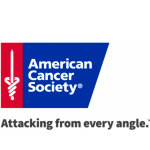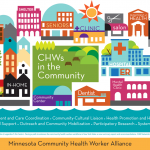 Sage at the Minnesota Department of Health provides free breast and cervical cancer screenings to low-income and uninsured Minnesota women. Sage and a University of Minnesota researcher, Prof. David Haynes, partnered to generate a map of Sage mammography use across Minnesota. The map was accurate to the neighborhood level, and identified Minneapolis and St. Paul neighborhoods that underused Sage mammography. Sage reached out to existing and potential partners that would support breast cancer screening in these areas. Now, Sage and the University of Minnesota have partnered with the Breast Cancer Education Association (BCEA) and Sisters Standing Up to Breast Cancer to increase breast cancer awareness and education using lay educators in primarily Black communities in the Twin Cities. This is the Champions project.
Sage at the Minnesota Department of Health provides free breast and cervical cancer screenings to low-income and uninsured Minnesota women. Sage and a University of Minnesota researcher, Prof. David Haynes, partnered to generate a map of Sage mammography use across Minnesota. The map was accurate to the neighborhood level, and identified Minneapolis and St. Paul neighborhoods that underused Sage mammography. Sage reached out to existing and potential partners that would support breast cancer screening in these areas. Now, Sage and the University of Minnesota have partnered with the Breast Cancer Education Association (BCEA) and Sisters Standing Up to Breast Cancer to increase breast cancer awareness and education using lay educators in primarily Black communities in the Twin Cities. This is the Champions project.
 These four organizations agreed that reaching Black women for breast cancer screening is a priority. In Minnesota, Black women have an 8% higher mortality rate for breast cancer compared to non-Hispanic white women. Black women are more likely to delay breast cancer screening and be diagnosed with breast cancer at a later stage, which leads to greater breast cancer mortality among Black women. Recent research in Minnesota found that African American women delay screenings due to distrust in medical providers. A second Minnesota-based study found that immigrant African women had low screening rates due to language, cultural and structural barriers. These trends suggest interventions to overcome barriers to care experienced by African American and immigrant African women in order to increase breast cancer screening.
These four organizations agreed that reaching Black women for breast cancer screening is a priority. In Minnesota, Black women have an 8% higher mortality rate for breast cancer compared to non-Hispanic white women. Black women are more likely to delay breast cancer screening and be diagnosed with breast cancer at a later stage, which leads to greater breast cancer mortality among Black women. Recent research in Minnesota found that African American women delay screenings due to distrust in medical providers. A second Minnesota-based study found that immigrant African women had low screening rates due to language, cultural and structural barriers. These trends suggest interventions to overcome barriers to care experienced by African American and immigrant African women in order to increase breast cancer screening.
Currently, five Champions are active in the field promoting breast cancer awareness and screening. Champions are able to provide education, information, help navigate some barriers, and provide emotional support for women interested in or getting screened for breast cancer. Champions are African American or immigrant East or West African women who work primarily with Black women and women of color.

We originally imagined Champions as working at mobile mammograpy events, but with the advent of COVID, we’ve had to rethink our model. COVID has challenged us to find new ways to communicate about breast cancer. Some Champions are now active on social media, and have been creating posts and sharing information within their professional, community, and personal networks. Champions have attended food drives, handing out breast cancer information while families pick up food. Others have scoured local salons and grocery stores to find places to leave information or to hand out information to women in store. Some have provided information or short presentations to fellow nursing school students, church prayer groups, or activity groups. Others are approaching community stakeholders to lay the foundation for outreach within organizations. Champions choose the events, times and places they wish to work. Champions are briefed on COVID saftey, can work with most locations with their COVID protocols, and provide some of their own saftey materials (masks, hand sanitizers). The Champions project is moving forward despite many set backs due to COVID.
Champions are community leaders committed to being recognizable sources of breast cancer education and support. We are increadibly excited about what this project can do! The current project is funded through Decemeber 2021. We are looking for partnerships and opportunities to expand our reach. Please reach out if you have any ideas!
Contact:
Gaylynn Richards
Benita Robinson
David Haynes
Kelly Hughes
Also please check us out and follow us on social media!
Breast Cancer Champions Email
Facebook Group
Instagram
Twitter
![]()



